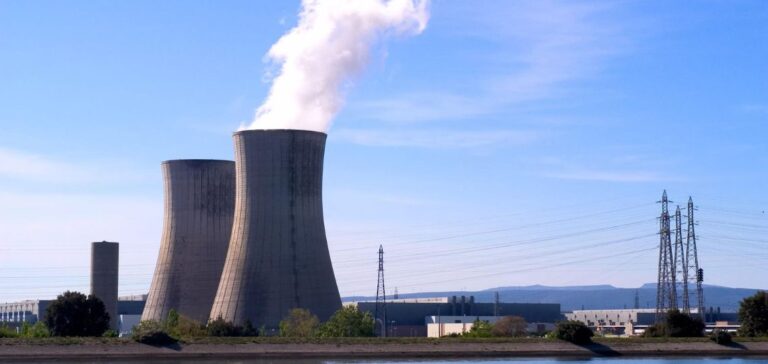The timetable presented by EDF to control the welds at risk of cracking in its nuclear reactors, presented in mid-March, has been judged “appropriate” by the Nuclear Safety Authority (ASN), according to press releases from both entities.
The black series for the electric utility had begun in October 2021 with the discovery of a micro-crack in one of its newest and most powerful plants, a phenomenon known as “stress corrosion.” EDF had been forced to launch a major inspection and repair plan, revised last December, which led to the shutdown of many reactors in the midst of the energy crisis.
But EDF had to revise its control program after the discovery of a new crack, very important, in a pipe of the reactor number one of the plant of Penly, in Seine-Maritime (west). In mid-March, the electric utility submitted its new battle plan to the ASN.
“In mid-March, the ASN took note of this amended strategy, which includes a reinforcement of controls on repaired welds, while requesting that technical dialogue continue, in order to ensure the relevance of the schedule envisaged for controls on priority welds,” the ASN said in a statement published Tuesday. “Following these exchanges, ASN considers this schedule to be appropriate,” she said.
On Wednesday morning, EDF welcomed in a press release the fact that the ASN “has indicated that it considers the planned schedule for checks on priority welds to be appropriate”. “To date, the estimate of nuclear production in France for 2023 remains in the range 300-330 TWh,” the group said. The ASN points out that according to this schedule, “90% of repaired welds identified as priorities by EDF because of their repair conditions will be inspected before the end of 2023, and all of these welds will be inspected by the first quarter of 2024. The Authority specifies that the “technical exchanges” with EDF “focused more particularly on the reactors with (…) welds whose inspection is considered a priority”, i.e. reactor 1 at the Nogent-sur-Seine plant and reactor 2 at the Cruas plant. Operating measures will be implemented” on these two reactors “until their scheduled shutdowns in September 2023”.






















